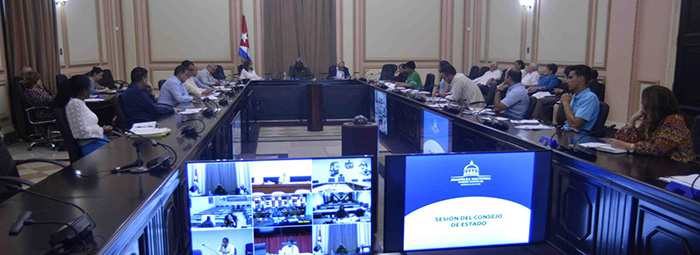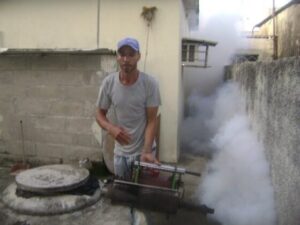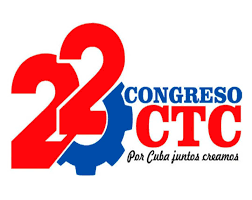Council of State analysis of the preliminary results of the delegate’s accountability process to his or her constituents and other issues on the national agenda
A report on the preliminary results of the first accountability process of the delegate to his electors of the 18th mandate of the Municipal Assemblies of People’s Power was received today by the members of the Council of State, in a session headed by Esteban Lazo Hernández, president of this body, with the participation of the First Secretary of the Central Committee of the Party and President of the Republic, Miguel Díaz-Canel Bermúdez.
Homero Acosta Álvarez, Secretary of the Council of State, stressed that this important process, a genuine expression of socialist democracy, took place in the national territory between 20 September and 15 November.
Of the 65,128 meetings planned to be held, 64,999 were held, 99.80% of the total.
In this sense, Acosta Álvarez specified that the 129 meetings that could not be held during the period belonged to the municipalities of Baracoa, Imías, Maisí and San Antonio del Sur, in the province of Guantánamo, due to the consequences caused by hurricane Oscar and the heavy rains in those localities.
However, he stressed that the link achieved in these districts between the delegates and their voters, during the recovery from the effects of the meteorological event, makes it possible to consider this process completed in these Guantanamo districts.
The issues most frequently raised by the population are related to the country’s current economic situation, among them the water supply and repair of hydraulic networks, the need to reduce the prices of food products, the supply in the retail network, the repair of roads, public transport, the collection of solid waste, the programme for the construction and repair of housing, and the electricity situation, among others.
In general terms, it has been a process with satisfactory results, with great popular participation, with high voter support for their delegates, which also signifies support for the Cuban participatory and democratic socialist model, in the midst of the country’s current complex situation, Acosta said.
The fact that the population participates, supports and makes its proposals is also a recognition of these mechanisms of popular participation. We also recognise the organisation of the process and the role played by the delegates in this important exercise, as genuine representatives of the people, he said.
Esteban Lazo urged to maintain rigorousness, exigency and control in the future in the attention and response to the proposals made by the population during this process, and to develop exhaustive analyses in this regard in each popular council and municipal assembly.
Afterwards, Mildrey Granadillo de la Torre, first deputy minister of the Ministry of Economy and Planning (MEP), gave a detailed report on the progress of the implementation schedule of the government’s projections to correct distortions and boost the economy.
She acknowledged that, since the last session of this body held on 16 October, progress has continued to be made in actions aimed at macroeconomic stabilisation, the generation of foreign currency income for the country, the increase in national production with emphasis on the use of installed capacities, the strengthening of the business system and integration between all economic actors, social policies, among other priorities.
Granadillo de la Torre added that a decisive stage is beginning to take stock of what has been achieved and what is still pending, with the corresponding evaluation of the actions for continuity in implementation.
At the same time, he said that this has been a month in which the adverse impacts of the meteorological events have required the government to focus its attention on the recovery of the affected provinces, without neglecting the work system for the implementation of the projections.
In addition, the First Deputy Minister of the MEP emphasised that the exchanges held with the provincial councils have made it possible to analyse the territorial expression of the Government’s projections, bearing in mind that the implementation of strategies, policies and actions takes place in the municipality, as the primary and fundamental political-administrative unit of the national organisation.
Félix Martínez Suárez, president of the Economic Affairs Commission of the National Assembly of People’s Power, commented on the main actions carried out by the supreme organ of state power and its permanent working commissions on this issue.
He stressed that the Council of State has evaluated on a monthly basis the report presented by the Prime Minister on the state of compliance with the Government’s projections and on three occasions the presentation by the Ministry of Finance and Prices on the progress of the tax measures and their impact on the reduction of the fiscal deficit, contributing ideas and proposals in order to continue advancing in the fulfilment and attention to the approved measures.
It was also proposed that the provincial councils and municipal assemblies of the People’s Power develop a process of evaluation of the actions implemented in 2024 in this matter, with emphasis on the impact of the measures implemented in each territory and the actions to be developed in 2025.
Subsequently, the members of this body approved the decree law «On Official Statistics» which aims to establish the general legal framework for the development, production and dissemination of official statistics of the Republic of Cuba, which satisfies the right of all persons to request and receive accurate, objective and timely information from the State, and to access that which is generated in State bodies and entities; said Juana María Pantoja, head of the National Office of Statistics and Information (ONEI), in the presence of Rosabel Gamón Verde, first deputy minister of Justice.
The priority required in the comprehensive care of children, adolescents and young people, and the elderly.
Deputy Prime Minister Eduardo Martínez Díaz shared how the action plan of the Policy of Comprehensive Care for Children, Adolescents and Youth is being implemented, with the participation of the Minister of Education, Naima Ariatne Trujillo Barreto.
She explained that this policy aims to promote the comprehensive development of children, adolescents and youth, their protection and social inclusion with equity, as well as their contribution to social development and national unity. It contains 14 specific objectives and its implementation is based on a plan composed of 120 actions, of which 92 correspond to the 2023-2025 period and 28 to the 2026-2030 stage, said Martínez Díaz.
Yoerky Sánchez Cuéllar reflected on the importance of each young person making the Policy their own and participating, as a true protagonist, in decision-making.
Meanwhile, Esteban Lazo said that this is the fruit of Fidel’s vision, work and thought; a commitment to the defence of the values of the Revolution, with a view to caring for the future of the homeland; hence it is the task and responsibility of everyone to contribute to its effective materialisation.
During the debate, Arelys Santana Bello, head of the Commission for the Care of Youth, Children and Women’s Equal Rights, emphasised that it is necessary to work more intensely on the systems of articulation from each body to the territories, as well as to critically analyse whether it is necessary to make new proposals or to improve the action plan of this policy of special importance for our society.
It is necessary to work in an agile, intentional and systematic manner in order to give a greater rhythm to the progress achieved by improving the control mechanisms in the municipalities, he said.
The Council of State also evaluated the actions for the development of care and attention services for the elderly as part of the Policy for the Attention to Demographic Dynamics; after detailed information presented by the Minister of Public Health, José Angel Portal Miranda; accompanied by Cristina Luna Morales, head of the Health and Sports Commission of the Cuban Parliament.
Attention to demographic dynamics is an integral and cross-cutting issue for the whole of society, which requires greater support from the responsibility of the agency, local governments and the families themselves in the effective and comprehensive care of the elderly and in the operation of grandparents’ homes and homes for the elderly, said Portal Miranda.
In the ordinary session of the Council of State on 20 November, Ydael Pérez Brito, Minister of Agriculture, updated this body on the fulfilment of the 20 recommendations of the highest audit carried out by the National Assembly of People’s Power to this body in the last quarter of 2023.
Ramón Aguilar Betancourt, president of the Cuban legislature’s Agrifood Commission, said that the parliamentary commission considers that this ministry should concentrate at this stage on controlling the use of land and livestock, strengthening the fulfilment of all the production indicators contracted by all the actors in the production scenario, the sustainable increase of exportable items that replace imports, and the consolidation of the functioning of municipal agro-industrial companies and cooperatives as actors in the local food system, among other priorities.
At the meeting, the president of the Commission of Industry, Construction and Energy of the National Assembly, Magda Ileana Pérez Matos – accompanied by the President of the Institute of Territorial Planning and Urbanism (INOTU), Major General Raúl Omar Acosta Gregorich – proposed to this body to develop the control and supervision of INOTU, an exercise that will take place during the first quarter of 2025 and will cover the period corresponding to the end of 2024, aimed at compliance with the provisions of Law no. 145 «On Territorial Planning and Urbanism», Law no. 145 «On Territorial Planning and Urbanism», and will cover the period corresponding to the end of the year 2024, aimed at compliance with the provisions of Law no. 145 «On Territorial Planning and Urbanism». 145 «Del Ordenamiento Territorial y Urbano y la Gestión del Suelo».
The Council of State orders the election of the provincial governor and vice-governor of Las Tunas.
The Council of State of the Republic of Cuba, in use of the powers vested in it, ordered that the election of the provincial governor and vice governor of Las Tunas be held on December 8, 2024, at 10:00 a.m.
The agreement issued in this regard by this body will be published in the Official Gazette of the Republic; which will include the deputies designated so that, together with the President of the corresponding Municipal Electoral Council, they will preside over the voting for the offices of provincial governor and vice-governor in this territory.
Articles 175 and 180 of the Constitution of the Republic establish that the provincial governor and vice-governor are elected by the delegates to the corresponding municipal assemblies of People’s Power, at the proposal of the President of the Republic, for a period of five years and in accordance with the procedure established by law. The president of the corresponding Municipal Electoral Council and the deputy designated for this purpose by the Council of State preside over the voting.
Finally, at the ordinary session of the Council of State, the agreements adopted by this body at its previous meetings were checked.




